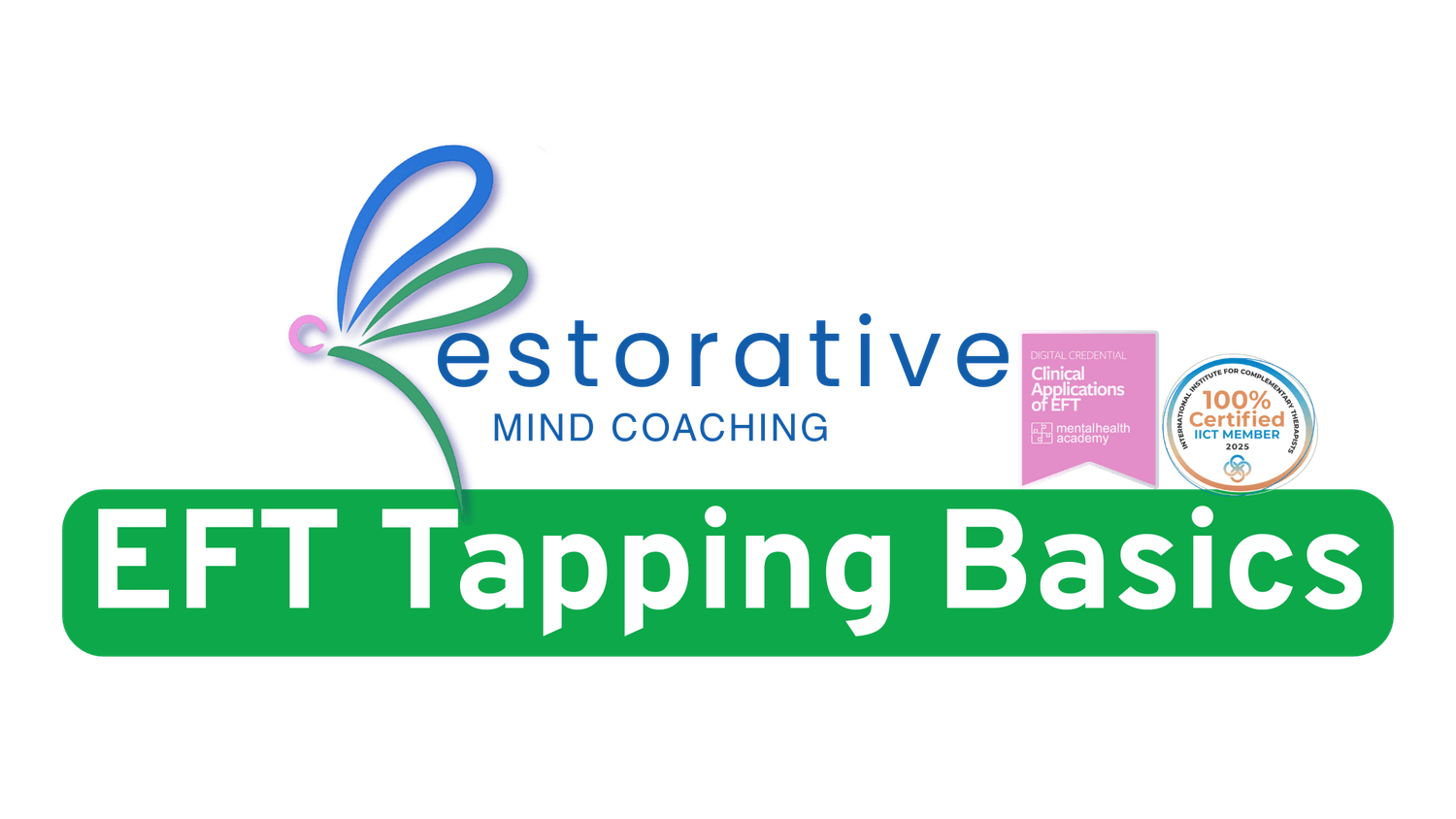🩵Thanks for being here🩵
I'm so grateful to connect with you! I want you to know that I respect your journey, perspective, and beliefs. I believe everyone has not only a right, but a responsibility to seek truth and come to their own conclusions.
Looking for something specific? Visit categories: restorative therapies, science, and spirituality- Or just read the latest!
Navigating Alternative Healing as a Christian: Discerning Truth
Crystals? Energy?? Yikes!
The world of alternative healing is full of ideas—some helpful, some questionable, and some that can feel outright conflicting for people of faith.
As Christians, we want to care for our bodies and minds, but we also don’t want to step outside the bounds of truth or unknowingly place our trust in something that takes us away from God.
I’ve seen many people wrestle with this, and I get it. Maybe you've experienced relief from a healing method that isn't widely accepted in Christian circles, and you’re wondering if it's okay. Or maybe you’re drawn to alternative approaches but hesitate because you don’t want to be deceived. You might even fear what others will think if you explore certain practices.
That concern is valid!
God cautions us to be discerning. He also asks us to be an example to others and never lead them down a path that might shake their faith (1 Timothy 4:12). That’s why it’s important to understand a few core principles that can help us navigate healing wisely. Here are some that guide me. I don't claim to know it all or have it all figured out, so take this for what you will...
1. Worship the Creator, Not the Creation
Through prayer, study, and personal experience, I’ve learned that discernment isn’t about fearfully avoiding everything unfamiliar—it’s about thoughtfully seeking truth and staying anchored in God’s wisdom.
Let’s walk through a faith-centered approach to healing that honors both wisdom and freedom in Christ.
God is the Source of All True Healing
The first and most important question I ask before engaging in any healing practice is: Where does this method claim healing comes from?
As believers, we recognize that all true healing comes from God. Whether it happens through prayer, medical treatment, lifestyle changes, or natural remedies, it is ultimately God who designed the body to heal and provided the wisdom to support that process (James 1:17).
That doesn’t mean we reject practical tools. God has given humans the ability to discover remedies, develop medicine, and understand the body’s design. But we should be cautious of anything that attributes healing to impersonal forces, universal energy, or human power alone.
Guiding Questions for Discernment:
✔ Does this practice acknowledge God as the source of healing, or does it suggest that healing comes from an external force, ritual, or personal power?
✔ Does it support my faith, or does it draw me away from trusting in God?
2. The Role of the Practitioner
Some healing methods—like breathwork, acupuncture, and tapping (EFT)—work within the body’s natural design. Their effectiveness is based on how God created our nervous system, brain, and body to function, not on invoking spiritual forces.
However, the way a practice is used depends largely on the intent of both the practitioner and the receiver.
For example:
- A practitioner could offer a technique as a client-led tool for self-awareness and healing, or they could present it as their own “spiritual gift” of healing.
- A receiver could engage in a practice with the intent to grow, learn, and take responsibility for their healing, or they could seek a passive experience where someone else “does the work” for them.
The intent of both the giver and the receiver shapes the entire experience. The same method can be approached as a practical, body-based tool or be intertwined with spiritual beliefs that do not align with biblical truth.
That said, some practices are inherently tied to non-Christian spiritual worldviews—such as candlelit rituals, psychic mediumship, or divination. These are not simply neutral tools being applied differently; they are designed to be used and recieve in a certain way,, which is why discernment is needed.
Guiding Questions for Discernment:
✔ Am I comfortable with the intent and beliefs of the person leading this practice?
✔ Am I approaching this practice with the right intent, or am I looking for a shortcut to healing?
✔ Does this practice complement my faith, or does it incorporate spiritual teachings that contradict it?
3. Reclaiming What Belongs to God
I’ve met Christians who avoid simple things like mushrooms, rainbows, and crystals—not because these things are harmful, but because they're used to identify with practices, lifestyles or ideas that Christians don't agree with and don't want to be identified with.
But here’s the truth: those things belonged to God first. And why be offended? Why divide? There's room for everyone! Don't let fear run you- We all love those symbols because they're cute or beautiful and of course we do! So wear, decorate, study, and talk about those things and give the glory to God!
- Crystals were formed in the earth by God’s design.
- Rainbows were given as a covenant sign (Genesis 9:13).
- Mushrooms, herbs, and natural remedies were placed on this earth for our benefit.
God didn’t create evil things—Evil, however, is real, and has it's own identity and purpose- and Evil skews good things wherever and whenever He can. When Christians retreat in fear instead of reclaiming what belongs to God, we surrender what was never meant to be lost.
Guiding Questions for Discernment:
✔ Am I rejecting something God created because it has been misused by others?
✔ How can I reclaim what is good and honor God with it?
4. Understanding Intent and God’s Design
I’ve always loved collecting rocks and minerals. In high school, I bought my first crystal—and I still have it! But at the time, I knew that crystals were often used in ways that didn’t align with my faith—whether in witchcraft or manifesting practices that claimed the stone itself held power. That never felt right to me, so I kept my crystals to myself.
Fast forward a couple of decades, and I started to learn more about how God provides energy, healing, and support through His creation in so many different forms:
✔ Dirt and the earth (hello, grounding!)
✔ Food and drinks (caffeine!, herbal teas, or nutrient-dense foods that fuel our bodies)
✔ Herbs and medicine (God-given and God-inspired remedies)
✔ Rocks and minerals (which conduct electricity, affect our systems, balance pH, and contain natural health properties)
I realized that my love for crystals had never been the problem—it was the belief systems around them that had made me hesitant. When I finally understood that they, like everything else in creation, were simply part of God's design, I felt free to embrace them in a way that aligned with truth.
At the end of the day, the difference is where we place our trust. I don’t put my faith in crystals. But I do put my faith God, as the Creator, who designed His world with built-in support for our well-being.
Does this mean I now accept every use of crystals? Not at all. But instead of avoiding them altogether, I can now recognize God’s design in them, feel gratitude for them, and benefit from them in their proper place.
Guiding Questions for Discernment:
✔ Am I honoring the Creator, or am I giving credit to creation?
✔ Is this being used in a way that aligns with God’s truth, or is it being misused?
You want to know something CRAZY COOL? My mother once told me idea of my name was one word (Crystalline) divided into two names (Christa Lynn). My very name carries the essence of what I'm teaching🤯
- Christa – Follower of Christ, or Christ-bearer
- Lynn – water, pure
- Crystalline – Meaning structured, pure, and aligned in form
- clear away untruths
- create a structured path to help people see themselves in their purity
- to love and embrace God's creations as they were originally created to be
- respresent well, my devotion to the LIVING WATER: Jesus Christ, my friend and my Savior
It’s like God has woven this thread into my life from the very beginning. I recognize the irony, depth, and beauty in that- and I just feel grateful.🩵
5. Letting God Guide the Process
Discernment is not about having all the answers immediately—it’s about trusting that God will guide us at the pace we’re ready for.
If something doesn’t feel right, there may be a reason. Maybe it’s not for you. Or maybe it’s not for you right now.
The key is to stay open to truth, rather than being driven by fear. When we allow God to lead, we don’t have to live in anxiety about “getting it wrong.” If we’re sincerely seeking Him, He will give us clarity in His perfect timing.
Final Thoughts: Stand Firm in Truth, Not Fear
Discernment isn’t about fearfully avoiding things that could be misused—it’s about seeing them clearly for what they are and keeping our trust in God.
If we reject everything that has ever been misused, we end up handing over most everything! Instead, I believe we are called to see clearly, reclaim truth, and give God the glory for what He created.
I’d love to hear your thoughts—how do you personally navigate discernment in these areas? Also- what does your name mean- and do you feel like it aligns with your identity?
Want to Learn More About EFT?
Watch tapping videos on my YouTube channel
Free EFT Basics Course

Learn the essentials of tapping in less than an hour!
Perfect for personal use, stress relief, and emotional healing.

Hey, I'm Christa…
Restorative Living is a space created to support your healing journey—helping you find emotional freedom, reconnect with your true self, and develop the conviction to live aligned with your deepest truth. Through insights, science-backed methods, and real-world applications, this blog explores what it truly means to heal—mind, body, and spirit—so you can move forward with clarity, peace, and purpose.
CONNECT WITH ME
Created with © systeme.io


